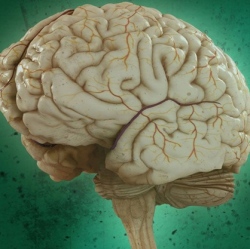
To help those trying to quit, scientists came up with the idea of a nicotine vaccine that can train a smoker’s body to attack nicotine molecules before they reach the brain, eliminating their effect and, thus, the person’s desire to smoke. Now researchers in California have developed a more effective nicotine vaccine, according to a study published in Medicinal Chemistry.
Nicotine vaccines aren’t a new idea, a few years ago, two were tested in clinical trials. But those ended because the vaccines weren’t very effective, working in just 30 percent of patients. A few years ago, the same Scripps scientists created a more effective vaccine by slightly tweaking the molecules to which the body forms an immunity.
All molecular compounds have a “handedness,” which refers to how the different chemical components fit together, and the researchers created a vaccine for only the left-handed nicotine molecule, which is by far the most common. That change made the vaccine 60 percent more effective in mice, according to a study published last year.
Now the researchers have worked to further improve the vaccine by altering the molecules that alert the immune system, over time training it to attack nicotine. They determined that, with just the right concentration of carrier proteins and nicotine molecules, the mice developed a robust antibody response, showing that the vaccine was working. In addition, the mice showed a “severely blunted” response to nicotine when dosed with the vaccine.
In future studies the researchers plan to investigate the physical dynamics between the various molecules in the vaccine and the immune system to determine the concentration of antibodies necessary to make the vaccine work. They also plan to test the vaccine on rats, which they say will provide them with “better insight” into how the vaccine could be clinically feasible.
Though a nicotine vaccine hasn’t made it to the market yet, studies like this one show that it’s possible for one to be more effective. They may also open the door to the idea of using a vaccine to treat other addictions; the same researchers are also working on a vaccine against the opioid fentanyl. If they make it to the market, these new treatment methods could eventually help many people dealing with addiction.
